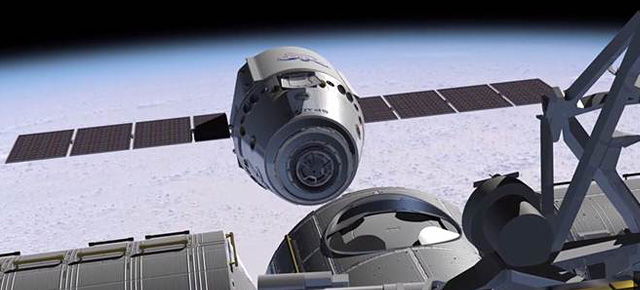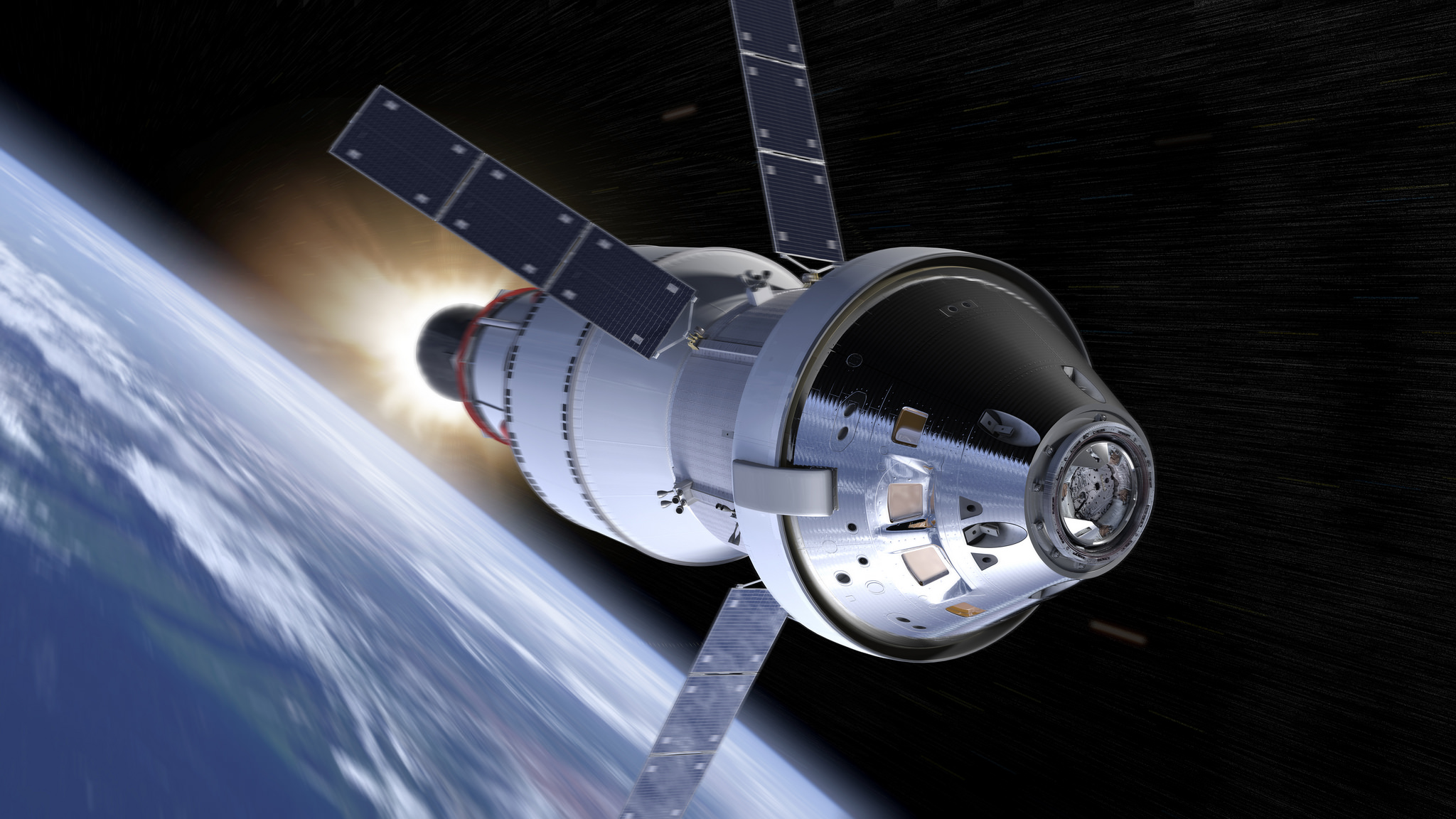Russia's Space Woes Stress NASA's Need for Private Spaceships

The recent delay of the next manned launch to the International Space Station due to a damaged Russian space capsule highlights NASA's critical need for commercially built vehicles, space policy experts say.
The Russian Soyuz spacecraft was originally scheduled to launch to the orbiting outpost on March 29, but the capsule was damaged in a botched pressure test and is unusable for the upcoming flight. Instead, Russia is preparing the next spaceship on the line, which means the liftoff will occur no earlier than May 15, NASA's space station program manager Mike Suffredini announced Thursday (Feb. 2).
Since the retirement of NASA's space shuttle program last summer, the space agency is now completely reliant on Russian spacecraft to ferry astronauts to and from the orbiting laboratory. In the meantime, several commercial companies are building a new fleet of private spaceships to fill the gap left by the mothballed orbiters.
But these transportation services will not be available until at least 2017, NASA officials have said.
Facing an uncertain budget climate, NASA has also changed its approach to funding the private development of these commercial spacecraft under the space agency's Commercial Crew Development program, which could push back the start of U.S. commercial flights to and from low-Earth orbit. [Infographic: Inside Russia's Soyuz Space Capsule]
With only one means of reaching the International Space Station at the moment, it is becoming more crucial than ever to fund the development of these new vehicles, said John Logsdon, space-policy expert and professor emeritus at George Washington University in Washington, D.C.
"It's not clear to me what is in the mind of U.S. Congress as they provide inadequate funding for rapid progress in commercial crew," Logsdon told SPACE.com. "Do they not care about the dependence on Russia? Or do they want commercial crew to collapse and go back to a single government system? It would be good if we got some policy clarity on our side."
Breaking space news, the latest updates on rocket launches, skywatching events and more!
Funding for NASA
As part of its 2012 budget request, NASA originally earmarked $850 million for the Commercial Crew Development program. In December, Bill Gerstenmaier, NASA's associate administrator for human exploration and operations, told reporters that $406 million had already been approved by Congress as part of the agency's $17.8 billion budget.
Still, more funding is needed to kick-start the fledgling program, Logsdon said. In 2003, Logsdon was a member of the Columbia Accident Investigation Board, and the committee's findings led to the decision to retire the space shuttles. But it was made clear that the agency needs an alternative means of carrying astronauts into space, Logsdon said.
"We on the Columbia board in 2003 called the lack of a replacement for the shuttle a failure of national leadership, and that failure continues, as exemplified by the congressional unwillingness to adequately fund commercial crew," he explained. "Congress seems to view it not as an urgent issue, which is very puzzling to me."
Budget requests for the fiscal year 2013 are expected to be released within the coming weeks.
"I fully expect the administration to once again request what it considers adequate funding for commercial crew, and then it becomes up to Congress whether it once again disagrees with that request," Logsdon said.
And while Russia's recent setback with the Soyuz capsule is a concern, it is not yet cause for alarm.
"It's certainly not yet an emergency, and if Russia is able to qualify a new spacecraft for an early May launch, so that this is kind of a hiccup, then this is not an emergency," Logsdon told SPACE.com. "This is the space business. But if they can't, and if it turns out to be a general problem in the Soyuz, then there is a problem." [Video: Soyuz Rocket's Bumpy History]
In a news briefing yesterday, Suffredini said that he is convinced that RSC Energia, Russia's main space contractor, will be able to identify the issues and rectify them for upcoming flights.
"This particular event is very unfortunate, but you know this is a complicated business and things happen," Suffredini told reporters yesterday. "To me this is not indicative of some overarching problem at the Energia corporation. I have every confidence that they'll figure out the cause of this and rectify it for the future."
Developing new private spaceships
News of the Soyuz launch delay came alongside the announcement that private rocket builder Space Exploration Technologies (SpaceX) will not launch its unmanned Dragon capsule on a demonstration flight to the space station until late March, or possibly early April.
SpaceX is developing its Dragon capsule under NASA's Commercial Orbital Transportation Services Program, which is a partnership to manufacture robotic vessels to carry cargo and supplies to the space station.
While the company is currently focused on demonstrating the capsule's cargo-carrying abilities, SpaceX also plans to use a version of the vehicle to eventually carry astronauts and other paying customers to the space station, and is one of the contenders in the agency's Commercial Crew Development program.
"As one of the participants in the CCDev program, NASA is looking to SpaceX to make good progress toward cargo and later crew services to the ISS," Roger Launius, space history curator at the Smithsonian's National Air and Space Museum, told SPACE.com in an email. "With the space shuttle now retired, any delay in these efforts affect the larger effort to support ISS, and several inside the program have expressed concern."
Yet, the importance of upholding standards of safety remains paramount, and history has provided costly lessons on the consequences of being too hasty, he said.
"In late 1957 after the launches of Sputnik 1 and 2 the U.S. stepped up the flight of what would have become Vanguard 1 to regain some of the momentum in the space race," Launius explained. "The result was a catastrophic failure on the launch pad on December 8, 1957, that was worse for the space program than having postponed the attempt until engineers were more confident that they could fly the vehicle."
The project manager, Milt Rose, later expressed that he was convinced the launch would fail, but felt pressure to expedite the attempted liftoff to demonstrate an equally robust space program, Launius said.
Still, the stakes remain high for NASA's Commercial Crew Development program.
"Obviously, 2012 is not 1957 and the circumstances are different, but many are looking to SpaceX to succeed with their efforts in the same way that the Vanguard program was being hoped for and a catastrophe now would have important ramifications for the company, for expectations, and for the effort to move to the next human space access vehicle," Launius said.
You can follow SPACE.com staff writer Denise Chow on Twitter @denisechow. Follow SPACE.com for the latest in space science and exploration news on Twitter @Spacedotcomand on Facebook.

Denise Chow is a former Space.com staff writer who then worked as assistant managing editor at Live Science before moving to NBC News as a science reporter, where she focuses on general science and climate change. She spent two years with Space.com, writing about rocket launches and covering NASA's final three space shuttle missions, before joining the Live Science team in 2013. A Canadian transplant, Denise has a bachelor's degree from the University of Toronto, and a master's degree in journalism from New York University. At NBC News, Denise covers general science and climate change.
